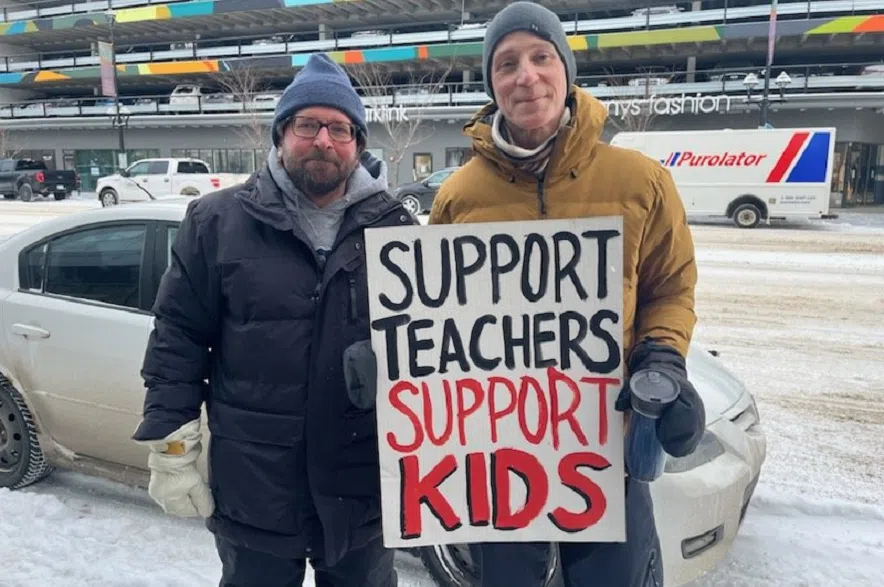The Saskatchewan Teachers’ Federation said Wednesday it’s calling off all of its job action after the provincial government invited the union back to the bargaining table.
That includes Thursday’s planned withdrawal of lunch-hour supervision.
In terms of the province’s two largest cities, Regina Public Schools, the Regina Catholic School Division, the Greater Saskatoon Catholic School Division and Saskatoon Public Schools all said classes will be held as normal Thursday, and will feature noon-hour supervision.
The teachers also have been holding rotating one-day strikes — including one in Saskatoon on Wednesday — while contract negotiations with the government were at a standstill.
In a statement on its website Wednesday, the union said the Government-Trustee Bargaining Committee extended the invitation late in the afternoon after getting a new mandate from the provincial government. The union’s statement said the sides are to meet Monday in Saskatoon.
“We welcome the opportunity to return to the bargaining table to discuss teachers’ proposals and the important issues facing education in Saskatchewan,” STF president Samantha Becotte said in the statement. “We are hopeful that the GTBC’s new mandate will allow for productive negotiations that will address the needs of students and teachers.”
According to the union, teachers who usually provide noon-hour supervision at schools can do so again Thursday.
“We are encouraged by this change in course,” Becotte said. “The solidarity of teachers and the outpouring of support from parents, students, businesses, churches and religious groups and the general public across the province have played a crucial role in helping bring government back to the table.
“These past weeks have made it clear that teachers are united and committed to students and public education. Should these negotiations fail, job action will resume.”
During negotiations, the STF has been asking to have class size and class complexity – meaning the number of students who require extra support – built into its new contract.
Education Minister Jeremy Cockrill has acknowledged those issues, but he and the government have been adamant that those matters should be addressed by school divisions rather than being included in a new collective agreement.
Teachers are also seeking an annual salary increase of two per cent – plus the Consumer Price Index average annual rate – for four years. According to Cockrill, that adds up to a 23.5 per cent hike over the four-year period.
The provincial government had countered with an offer of a seven per cent salary bump over three years, but it appeared Wednesday to be moving off that number.
“The teachers’ union has said they would like the same salary formula that MLAs have and that they will return to the bargaining table if the government offers a new mandate,” Premier Scott Moe said in a social media post. “Earlier this afternoon, that very deal was offered.”
Cockrill then provided more details in the accompanying video.
“We have authorized the Government-Trustee Bargaining Committee to offer a new mandate to either negotiate an extension of the current salary offer or to negotiate a deal that would see teachers receive the same annual salary adjustments under the same salary formula that MLAs receive,” Cockrill said. “Those salary adjustments would be based on the cost of living.”
Cockrill said the formula includes a three per cent ceiling and a zero per cent floor depending on the Consumer Price Index for the previous year.
The teachers’ union has said they would like the same salary formula that MLAs have and that they will return to the bargaining table if the government offers a new mandate.
Earlier this afternoon, that very deal was offered.Education Minister Jeremy Cockrill explains the… pic.twitter.com/HR7SwhMoEd
— Scott Moe (@PremierScottMoe) February 7, 2024











